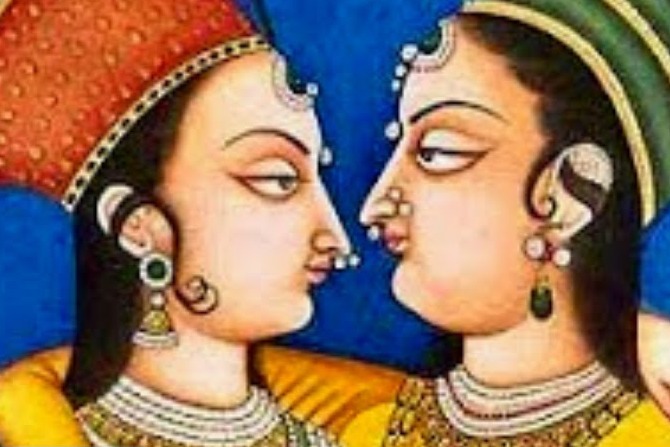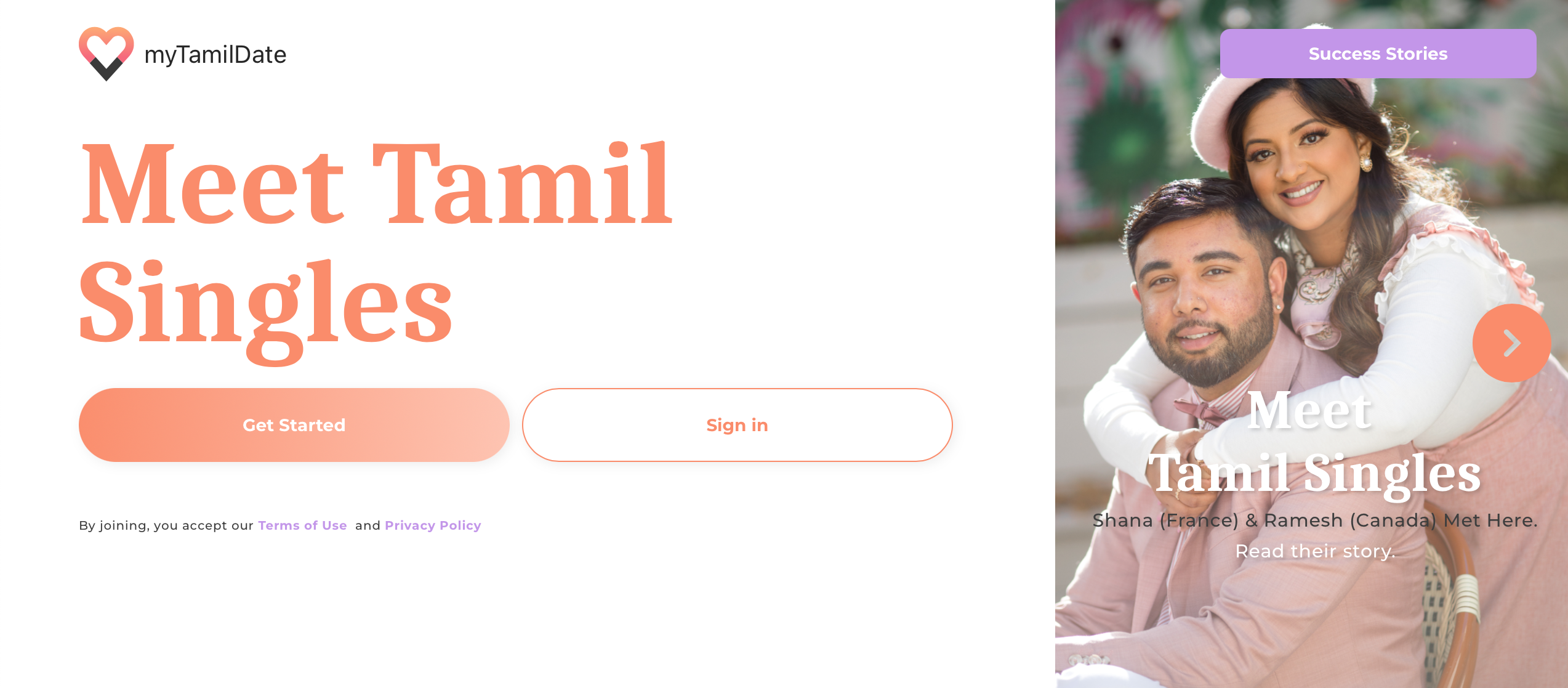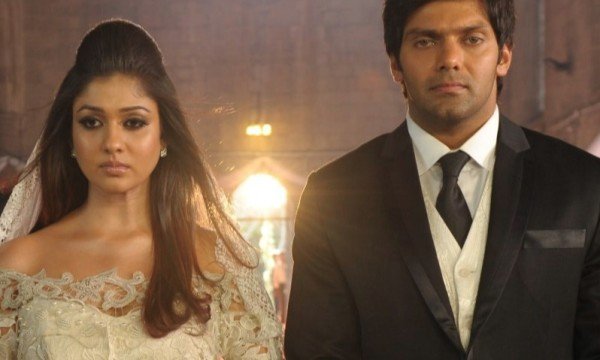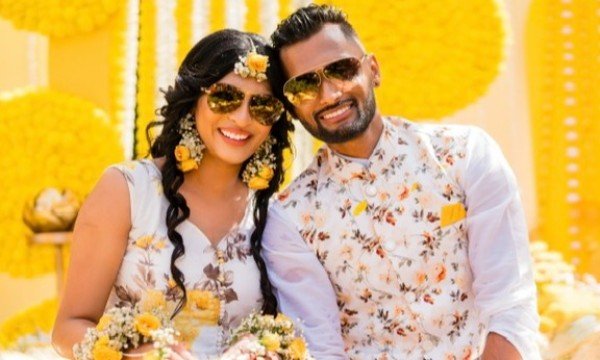
Date on your own terms! Find meaningful connections on myTamilDate from Toronto to London to Berlin!

*This is a continuation of the #whatthethirumanam series by @whatthepottu
First things first - Hinduism is not a single religion! As I often mention, Hinduism was a term first used by Asian Muslims to distinguish non-Muslim inhabitants of the subcontinent. Hence, it is a mix of many different indigenous cultures and practices. We are not going to get into the nuances of this concept today. However, what’s important to understand is that mainstream Hinduism today broadly accepts the following concepts: love (as the product of attachments formed in previous lives); rebirth (attachments persist from one birth to another); and marriage (which is supposed to outlast one’s lifetime).
Contrary to popular belief, homosexuality is not a western import. Same-sex unions have been represented in ancient Indian texts in a celebratory manner, but homophobia developed in South Asia during the colonial period to erase indigenous practices. For example, the British, through the Indian Penal Code of 1860 criminalized intercourse “against the order of nature”. During the colonial period, there was deliberate heterosexualization of entire literary canons and genres (such as the Urdu ghazal, or love poem, which gendered both lovers as male).
What do Hindu texts tell us? Firstly, the concept of love marriages exists in Hindu texts. In fact, a lot of Hindu texts accept 8 kinds of marriage. Same-sex marriage between two gay men or two lesbians was classified under the "gandharva" or celestial variety – "a union of love and cohabitation, without the need for parental approval." Gandharva marriages are often celebrated with symbolic Hindu rituals such as an exchange of garlands or walking around a fire together. Hindu sacred texts debate the status of Gandharva marriage; while it has a lower status in some texts, others consider it to be a superior form. For example, the fourth-century Kamasutra (the world’s first sex treatise), which is a sacred text, states that gandharva is the best form of marriage because it is based on mutual attraction (anuraga).
 myTamilDate Success: Agi’s First Attempt With Online Dating Led Her To Soulmate Ano I had never tried online dating before but I realized that it would be quite empowering to take control of my love life so I signed up! TamilCulture.com
myTamilDate Success: Agi’s First Attempt With Online Dating Led Her To Soulmate Ano I had never tried online dating before but I realized that it would be quite empowering to take control of my love life so I signed up! TamilCulture.com Those that oppose same-sex marriage in Hinduism often forget that there is a tradition in Hinduism, dating back two millennia, of worshipping the god of love, Kamadeva. "Purushayita", a chapter in the Kama Sutra mentions that lesbians were called "swarinis.” These women often married other women and raised children together. They were also readily accepted in ordinary society.
Let’s not forget the popular Hindu concept of rebirth. The mainstream Hindu view states that an individual is reborn in order to work through attachments from previous births and thus move towards freedom from attachment, which enables liberation from the cycle of rebirth. So, in order to break this cycle of rebirth, humans need to experience their desires. If an attachment is forcibly suppressed in one's lifetime, the individual will be reborn with the same attachment in the next life. According to this logic, it is unfair to suppress one’s desire to marry the person that they love!
Another Hindu concept is the importance given to the idea of “soulmates.” Repeatedly, in the Hindu narrative, authority figures who oppose an individual's passionate love are compelled to give in when they realize that this love is irresistible. As the eleventh-century Sanskrit Kathasaritsagara story-cycle states, in the context of an intense male-male attraction at first sight: "Vakti janmaantarapritim manah snihyadakaaranam" (Affection that arises in the heart without a cause speaks of love persisting from a former birth). In an interview, Srinivasa Raghavachariar, Sanskrit scholar and priest of the major Vaishnava temple at Srirangam in South India stated that same-sex lovers must have been cross-sex lovers in a former life. The sex may change but the soul remains the same in subsequent incarnations, hence the power of love impels these souls to seek one another. In another interview, a Shaiva priest from India who conducted the wedding of two Tamil women in Seattle stated:
Marriage is a union of spirits, and the spirit is not male or female.
So, Hindus who accept the concept of the “individual soul” and state that it is not gendered, then need to also accept that there is no need to separate two souls on the basis of sex.
Moreover, Hindus worship deities based on Hindu legends. A popular God that is worshipped by Tamils today, Lord Ayappan, was born from the union of Shiva and Vishnu (as Mohini). In some narratives, Vishnu remains in the female form of Mohini during their sexual union, but in others, he does not. Scholar Wendy Doniger states:
The extreme case of this homosexual agenda occurs in a Telugu variant of the story, in which, when Śiva makes love to Mohinī, in the middle of the act Mohinī turns back into Viṣṇu, and Śiva goes on with it — a very rare instance of a consummated, explicit, male homosexual act (seduction or rape) in Hindu mythology.
However, there are those that continue to oppose same-sex marriages in Hinduism and forbid such marriages in temples. However, in those same temples, there are numerous temple sculptures that celebrate homosexuality. A famous example is that of the Khajuraho temple of Madhya Pradesh which is known for its overt homosexual imagery. But there are also explicit images all over South Indian temples as well!
Yes, there are Hindu texts that forbid same-sex unions. For every Hindu text that someone points to speaking ill of same-sex union, there is another one that celebrates it. So, love as you please and let others choose who to love and marry.
*****Please note that my article is not intended to celebrate Brahmanism. As I learn more about caste oppression, I understand the dangers of promoting Brahmanism and the complications of classifying what is “Hinduism” today. However, I wanted to take the opportunity to outline what is available under mainstream Hinduism today concerning same-sex marriage. It is also not a reflection of how Ancient Tamils conducted marriages. I continue to separate Tamil and Hindu practices. As I have written about in past articles, you can have a Tamil cultural wedding without a priest which truly upholds gender equality and negates caste discrimination, but we shall continue that in the next article. Stay tuned until then!****
Sources: "Wedding of Two Souls": Same-Sex Marriage and Hindu Traditions by Ruth Vanita; Same-Sex Weddings, Hindu Traditions, and Modern India by Ruth Vanita; Sources for a Queer Tamil History by Sureshkumar Muthukumaran.
Photo credits: The Bhaktivedanta Book Trust International, Inc.
To learn more about ancient Tamil customs and practices follow @whatthepottu: https://www.instagram.com/whatthepottu/?hl=en
READ NEXT:
Bridgerton portrays something relatively rare: a dark-skinned brown girl can be desirable

























